Casual observers of Tuesday night's Champions League action may have thought for a moment they were watching a replay of the quarter final between Spurs and Manchester City.
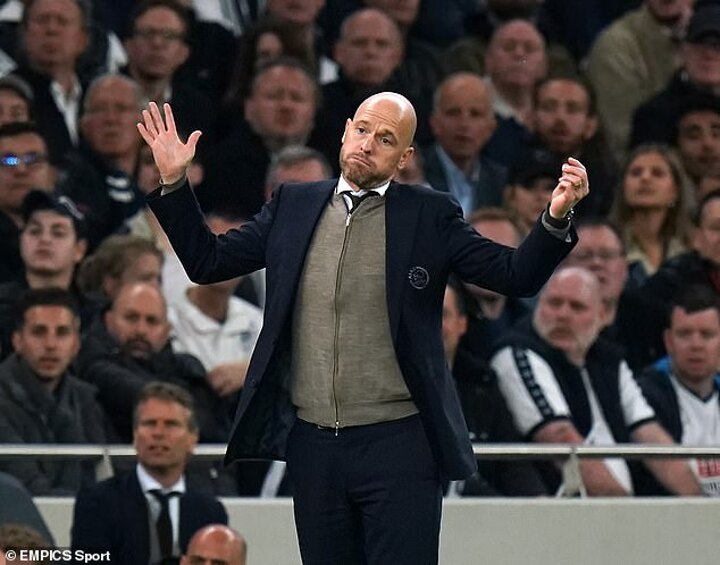
Stood in the away dug-out was a bald, bearded manager wearing a cardigan, instructing his immensely talented side to play passing, pressing, endlessly watchable football.
Ajax manager Erik Ten Hag's resemblance to Pep Guardiola is not skin deep - they share a philosophy, partly formed by two years spent together at Bayern Munich.
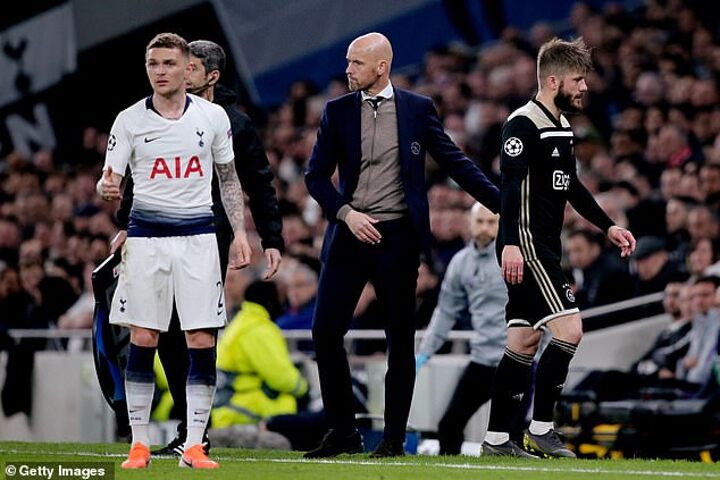
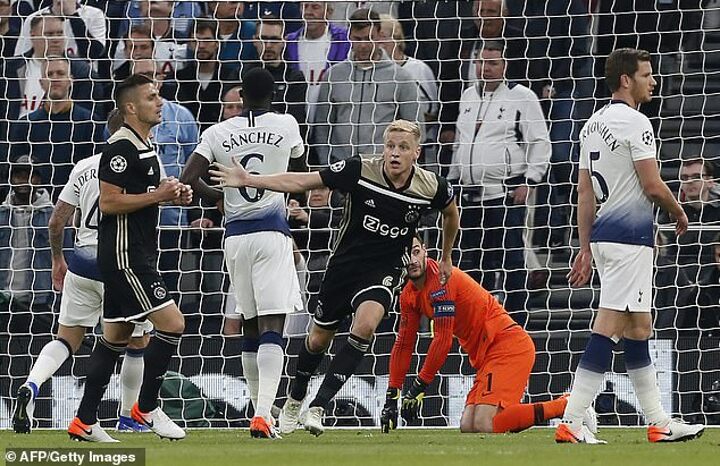
However the primary criticism fired at Guardiola - that he has had endless wealth to spend at City - could never be levelled at Ten Hag. Indeed, for a manager who could be about to guide Ajax to a first Champions League final since 1996, the 49-year-old has flown somewhat under the radar.
As Barcelona-bound Frenkie De Jong, teenage captain Matthijs De Ligt and goal scoring hero Donny van de Beek were celebrated as they claimed their latest European scalp in north London, Ten Hag was taking another step on a constantly rising coaching career so far 17 years in the making.
A centre back, Ten Hag had an unremarkable playing career - 312 games, entirely for clubs in the Eredivisie, starting and ending with Twente, with who he won his only major trophy - the 2001 Dutch Cup.
The rest of his playing days were spent flitting between teams who would get you decent scores in a game of football club Scrabble - De Graafschap, RKC Waalwijk, FC Utrecht.
Realising where his greatest strength would lie, Ten Hag retired from playing at 32 and became a youth coach at Twente, managing the U17 then U19 teams.
From here, he gained an appreciation in how to bring through youth talent, and how they can shape the fabric of a club and create foundations on which success can be built. Numerous academy products stepped up into the Twente team, most notably a young Marko Arnautovic.

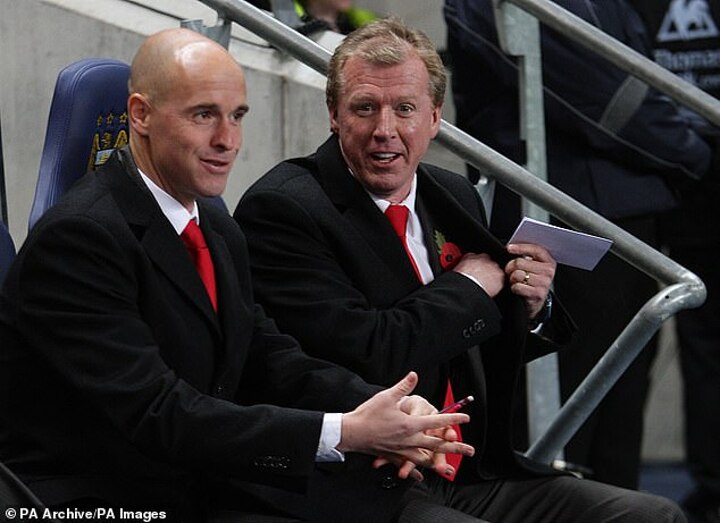
Over seven years Ten Hag was the cornerstone in Twente's greatest era, culminating in their first and so far only Eredivisie title. He served as assistant to three different managers, including Steve McClaren in his first year at the club, the 2008-09 season. Ten Hag left the following season, in which McClaren built on a runners-up spot to guide Twente to the championship.
After three years as assistant at PSV, Ten Hag became a senior manager in his own right for the first time in the 2012/13 season at Dutch second tier side Go Ahead Eagles.
Here, despite finishing sixth in the regular league season, the Eagles won promotion to the Eredivisie via the play-offs after a two-decade absence from the top flight.
Young players - notably future Dutch international Quincy Promes, who was key with 13 goals and nine assists - were at the centre of Ten Hag's plan. The Eagles squad had an average age of just 22.2 years.
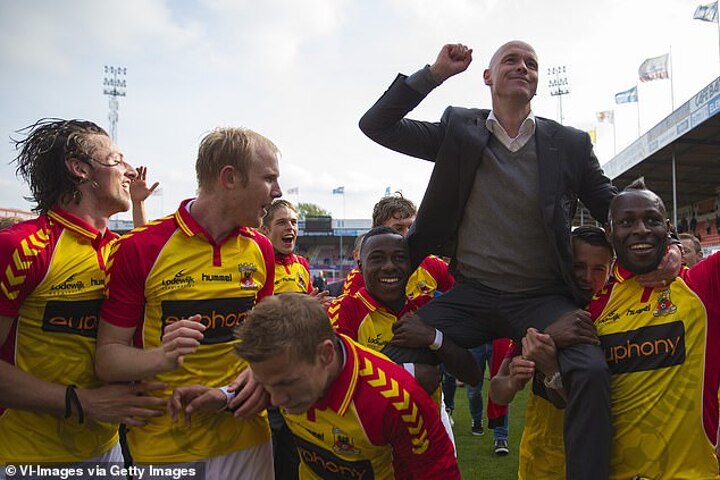
This ability to coax the best out of young talent and achieve tangible success attracted the attention of Bayern, who were revamping their coaching set-up having installed Guardiola as manager.
That same summer, Bayern recruited Ten Hag as manager of Bayern II, who played in the Regionaliga Bayern - the fourth tier of German football.
While at first glance a step down for Ten Hag - from the top tier in Holland to regional football in Germany - it gave the coach an opportunity to study Guardiola's style, and prepare and mould players in that image, away from the full beam pressure of first team management.
The impact of this can be seen on his Ajax team today - the focus on possession, the aggressive passing and pressing, and a goalkeeper comfortable on the ball. Guardiola had Manuel Neuer and now has Ederson; Ten Hag has Andre Onana.
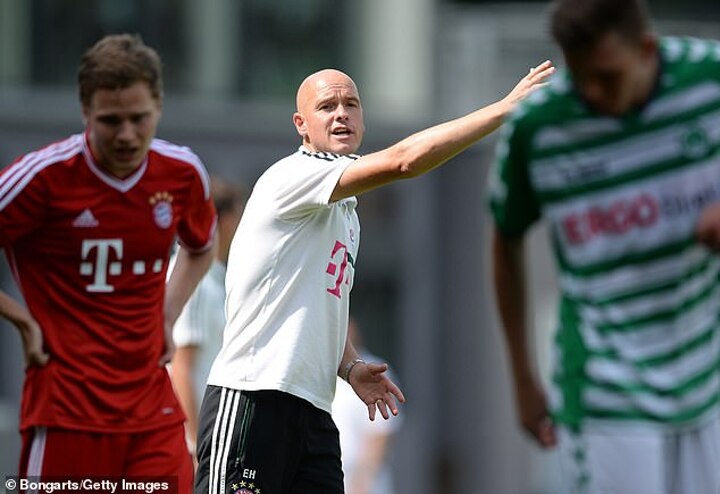
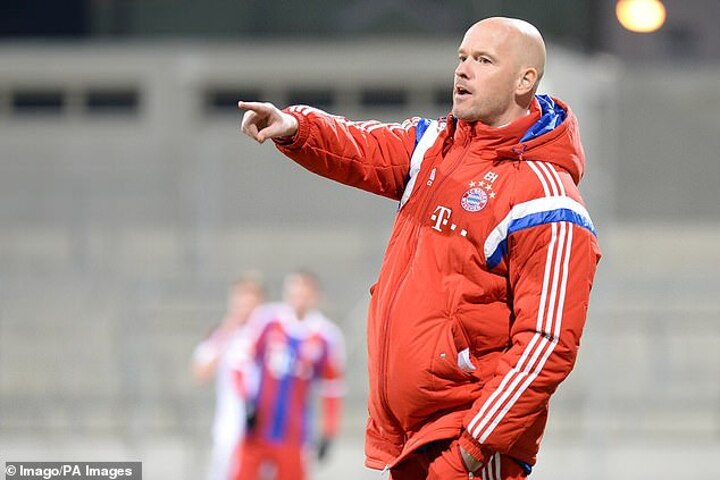
In two years with Bayern II, Ten Hag guided them to first place in the Regionaliga Bayern but lost out in the promotion play-offs, before a second place finish the following year.
Among talents he brought through include now-Southampton play maker Pierre-Emile Hojbjerg, Schalke winger and Austrian international Alessandro Schopf, and USA striker Julian Green.
He returned to senior management in Eredivisie with Utrecht in 2015, and after guiding them to fifth then fourth placed finishes, earning Europa League football, was given the top job at Ajax on 28 December 2017, following the sacking of Michael Reiziger.
It cannot be disputed that Ten Hag inherited plenty of foundations to build the success we are seeing at Ajax currently. The squad of 2017-18 was a massively talented young team, Europa League finalists months earlier.
However this was a team which needed shaping and guidance. They had lost in the second round of Champions League qualifying to Nice. Eight of the 11 players who beat Spurs in the semi-final first leg started the second leg loss to the Ligue 1 side.
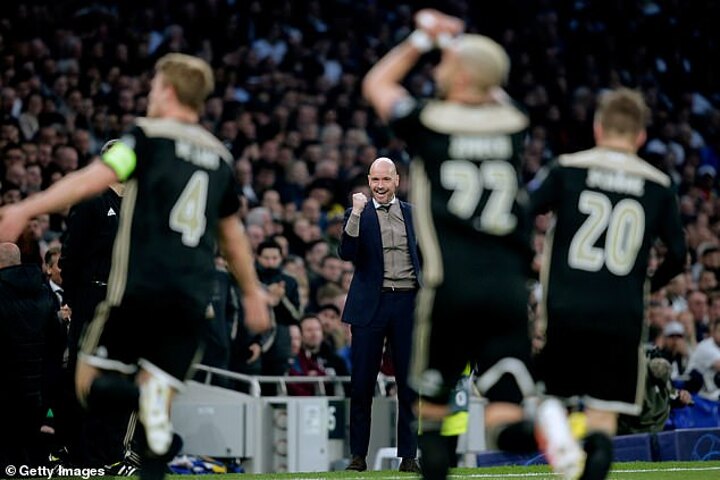
Ten Hag, using the 4-3-3 formation and all-action possession football style that became the trademark of the greatest Ajax sides, has produced a team with a record to match - in 70 games he has won 52, a rate of 74.2 per cent, and lost just seven. They have scored 192 goals and conceded just 60.
He is yet to lift a major trophy - Ajax finished four points behind PSV in the Eredivisie last season - but could conceivably win the treble this season. They lead PSV on goal difference in the league with two games left, have a Dutch Cup final against Willem II to come - and of course are on the brink of the Champions League final.
At 49, Ten Hag seems to be coming into his prime as a manager, having been allowed the space and time to build Europe's most impressive young side, with a clearly defined philosophy.
It seems every member of the Ajax playing staff is linked with a move to the richest clubs in Europe. Surely it is only a matter of time before their manager is too.
